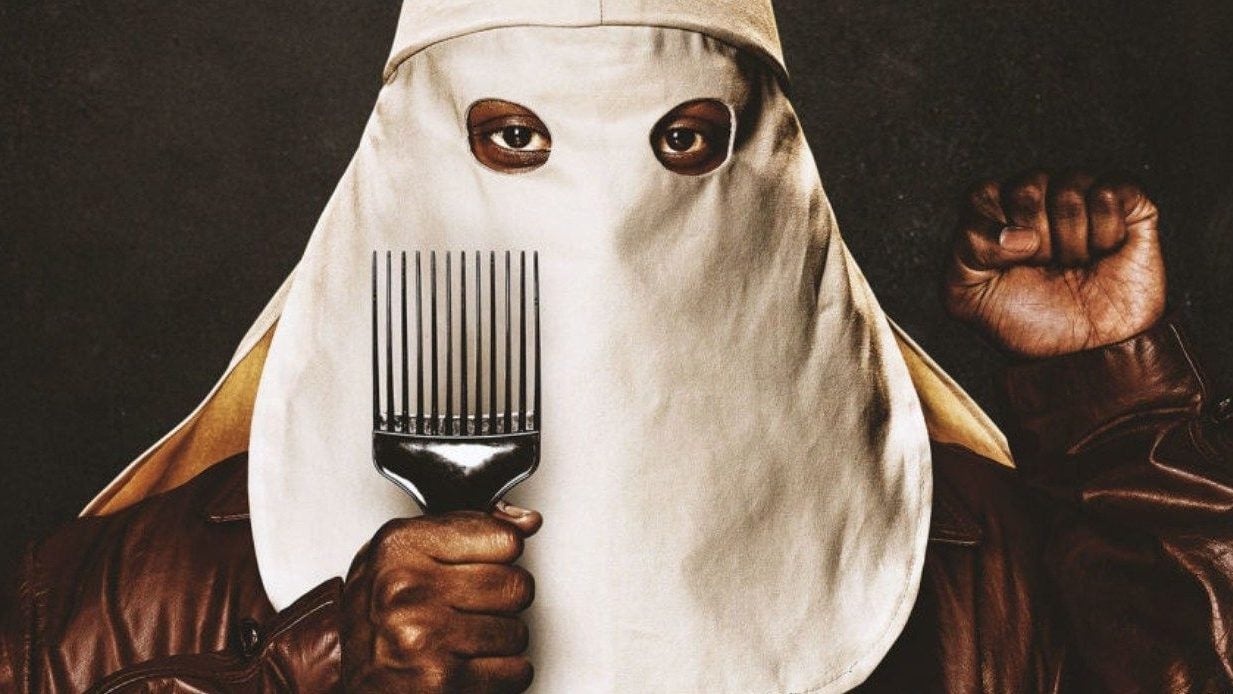The story behind Spike Lee’s “BlacKkKlansman”—and Boots Riley’s criticism of it
Spike Lee’s BlacKkKlansman has earned raves for its searing depiction of the history of racism in America and one black police officer’s clever mission to combat it. But it’s also provoked at least one prominent critic.


Spike Lee’s BlacKkKlansman has earned raves for its searing depiction of the history of racism in America and one black police officer’s clever mission to combat it. But it’s also provoked at least one prominent critic.
Boots Riley, the filmmaker, musician, and activist who directed last month’s critically acclaimed film Sorry to Bother You, took to Twitter last week to critique Lee’s film, which he argued was a fabrication that essentially amounted to pro-police propaganda. “It’s a made up story in which the false parts of it try to make a cop the protagonist in the fight against racist oppression,” Riley wrote.
Based on Ron Stallworth’s 2014 memoir, BlacKkKlansman tells the story of a black police officer in Colorado Springs, Colorado in 1979 who tricked the local chapter of the Ku Klux Klan into thinking he was a member. Posing as a racist white man over the phone, Stallworth ingratiated himself with the group. Whenever he had to meet the Klansmen in person, he sent a white colleague in his place.
While, so far, no one has disputed those facts as Stallworth recounted them, Lee’s film does take some creative license with the story. In the film, Stallworth’s white partner (played by Adam Driver) is Jewish, while in real life, he was not. In the film, Stallworth’s operation thwarts a Klan bombing, but in real life, no such bombing occurred (in fact, no member of the chapter was ever even arrested, though Stallworth did claim they were planning to bomb gay bars across Colorado Springs). The film also invented several characters: Patrice, Stallworth’s love interest, doesn’t seem to have a real-life counterpart, and neither does “Flanders,” a racist white Colorado Springs officer who harasses a group of black students in the film—though that incident is no doubt inspired by many real ones that happened then and are still happening today.
Still, some of the remarkable moments in the film did happen. Stallworth really did trick KKK Grand Wizard David Duke into thinking he was a white man interested in joining the group. For what it’s worth, Duke has accused the film of lying about several things, but seemingly admitted that he did indeed speak to Stallworth over the phone (video) multiple times. Stallworth’s investigation also uncovered that two Klan members were employed by the North American Aerospace Defense Command (NORAD) with high security clearances, and had to be reassigned.
Riley’s three-page critique, in addition to calling out some of these embellishments that make the police look more benevolent than they may have been, levels a few accusations of its own. He claims that Stallworth’s investigative work was primarily targeting radical black organizations, not the KKK, and that he was part of the FBI’s Counter Intelligence Program (COINTELPRO), which illegally surveilled and attempted to smear, discredit, and sow discord within various civil rights movements during the 1950s and 60s. COINTELPRO was discontinued in 1971, eight years before BlacKkKlansman takes place, but some of its contemptible practices continue to this day.
“With these fabricated story notes that Blackkklansman hits upon Ron Stallworth looks like a hero, and so does his partner and the police force,” Riley wrote. “Without the made up stuff and with what we know of the actual history of police infiltration into radical groups, and how they infiltrated and directed White Supremacist organizations to attack those groups, Ron Stallworth is the villain.”
Riley also cited a recent New York Post report that Lee’s advertising agency, Spike DDB, was paid more than $200,000 to work on a New York Police Department campaign to improve relations with minority communities, implying that BlacKkKlansman is part of a broader effort to make police seem like be allies in the fight against racism, instead of the enablers—and enforcers—of it.
When reached through his representatives via email on Tuesday, Lee said only this in response to Riley’s critique: “Spike Lee, NYU Grad Film School tenured professor, has no comment.” Stallworth, however, said this about Riley, in a statement to the website Okayplayer: “I pray for my demented and dissolute brother.”
Riley’s appraisal of the film is both well-researched and heartfelt—he starts by saying how much he respects Lee, and how much the legendary filmmaker’s immense body of work addressing racism has influenced him. Some writers and critics have defended Lee by pointing out that the film is probably not as pro-police as Riley believes it to be, or that simply having one or two goodhearted police characters does not deny the existence of systemic corruption and racism. (Indeed, in the film, Stallworth is obstructed every step of the way by his superiors, and almost the moment he demonstrates tangible evidence his infiltration is working, they call the whole thing off and destroy all his paperwork.)
Lee might argue that BlacKkKlansman plays more like fantasy, a wish fulfillment, a knowingly embellished demonstration of what could be—of what opportunities for progress within American institutions are being missed, destroyed, or forgotten every day.
It’s not necessarily pro-police so much as it’s pro the ideal of police—but even that, perhaps, is too forgiving of an institution that got its start by enforcing slavery and still, in 2018, authorizes and defends the killings of unarmed black men and women—no matter how many “good cops” may toil within its ranks.